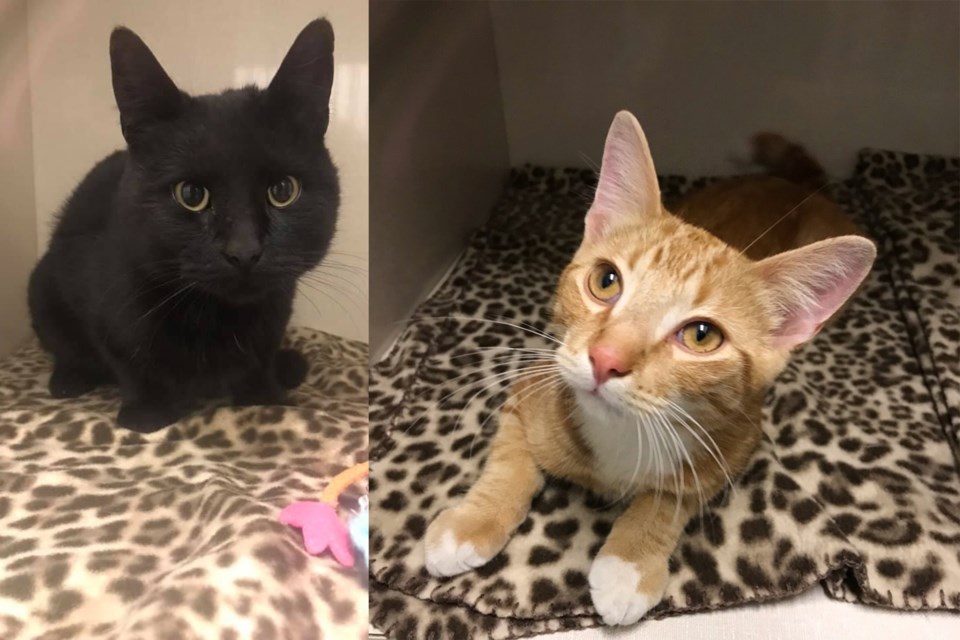ST. PAUL - Cats at large, stray cats, and sometimes feral cats that have never had a home, continue to roam the streets of St. Paul despite pleas asking residents to spay and neuter their pets.
In July, St. Paul Animal Shelter manager Erin Smereka confirmed that the facility was at capacity for cats, and had been that way since May.
Smereka says those involved with the shelter have been noticing that there are more stray cats, and more of those cats have been having kittens, compounding the issue. As a pet owner herself, she understands the costs to spay and neuter animals can be high for some, but in the long run, those costs do pay off.
Being at capacity, the shelter isn't able to take in any more cats, but Smereka says staff have been trying to point people in the right direction when calls come in seeking help for stray cats. And while animals do sometimes end up in Cold Lake, Bonnyville, Lac La Biche and even Lloydminster, Smereka acknowledges that it's not a solution, as those shelters have to take care of their own communities also.
“We are super, super busy," concedes Smereka, adding, there is a lot of work involved in finding places for animals who have no home.
Right now, the shelter is caring for 13 cats. Most of those cats arrived as stray animals and were not simple surrendered by previous owners.
And while many people may want to feed stray cats, Smereka reminds people that cats are fairly good at fending for themselves, although they are opportunistic feeders, and once you start feeding them, they likely won't leave. She also reminds people to keep their yards clear of garbage to avoid attracting unwanted visitors.
Town bylaw
"I can attest to the fact that St. Paul Municipal Enforcement did respond to a number of cat at large calls earlier this spring, but as of late we have not had a huge influx of related calls," says Sgt. Brent Sawatzky, Supervisor, Municipal Enforcement Officer with the Town of St. Paul, when asked about the current situation being seen in St. Paul.
"I do appreciate the frustration felt by residents when other people's cats or feral cats frequent their property. We deal with the calls for service as they come in, and often we are able to return the cats to their owners, and there have been tickets under the St. Paul Cat Bylaw issued as a result," he explains.
The Town of St. Paul Cat Bylaw was enacted in 2007 and outlines pet owners' responsibilities.
First of all, cats are not allowed to be left at large. Cats also aren't allowed to be on any school ground or playground, and if they are they will be deemed to be at large. Owners are also responsible for cleaning up any waste or feces caused by the cat.
In the Town of St. Paul, cats require registration, which can be done at the Town of St. Paul office. Residents are also limited to owning no more than three cats.
The municipality provides cat traps for rent in order to capture problem animals, but with the local animal shelter running at capacity most of the time, trapping cats with no place to go does become problematic, says Sawatzky.
Once again, the advice is the same - "St. Paul Municipal Enforcement encourages responsible pet ownership by keeping your cats on your own property, by spaying a neutering your cats," and registering cats allows for the animals to be reunited with their owners if they are found at large.
Trying to help
Amber Newbury has helped countless animals find homes over the past few years. It all started when she fostered a puppy in 2016, and lately the messages she receives asking for help are coming in multiple times a week.
The situation, she says, has become frustrating.
"I have a binder full of animals that I've helped," explains Newbury. She says she's been able to create contacts with a number of rescue organizations, and makes the drive to Mundare when needed to meet up with a rescue organization based in Edmonton, in a bid to help animals in need.
Newbury says that in her experience, the cat problem in St. Paul has probably quadrupled since 2019. And, it's not just her time that Newbury is giving to help the animals in need, but the financial costs are also adding up.
To help cover some of the costs incurred, Newbury and her family sell items they no longer need, and use money from recycling bottles. While she admits she isn't a big fan of the unpredictability of cats, she still feels a strong need to help the animals when they are in need.
"I care about them," she says, simply.
The issues with stray cats stem from a variety of places, in Newbury's opinion. She's helped cats wearing collars that were never claimed, she's responded multiple times to the same residences requesting help only to find the same issues repeated, and she's witnesses situations were people give kittens away only to see the kittens wandering the community later on.
"It's definitely non-stop."
She believe the Town of St. Paul should be tougher on residents in enforcing its Cat Bylaw, and would like to see some sort of collection done during the warmer months, of all the stray cats. Some specific areas of town have more stray cats than others, and are seeing more issues, she explains.
"My goal this summer was to help as many cats as I can, but it's mentally draining," says Newbury. Since June 6, Newbury has helped rescue 18 cats, transporting them herself to safety, "and there are still more."
Newbury is a believer in doing something about a problem, rather than sitting idle and complaining about the problem. She would like to see other people take the same approach.
"I just hope the community steps up," she says.



